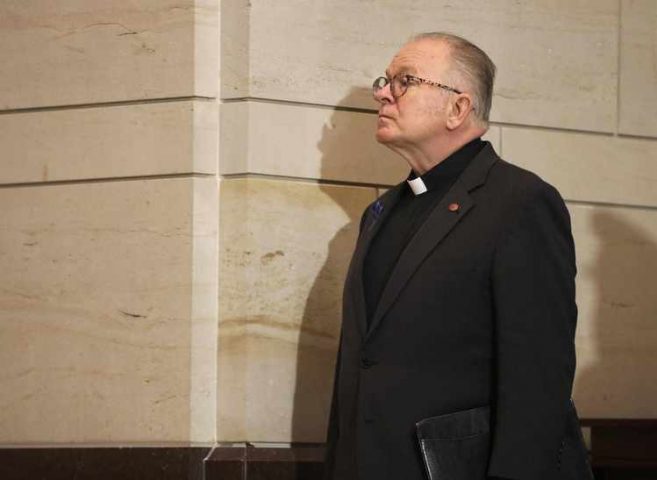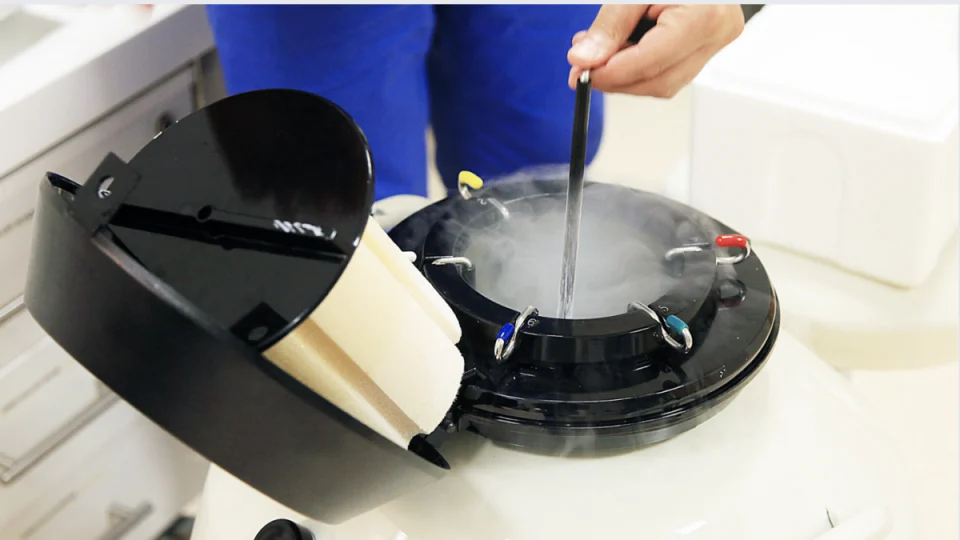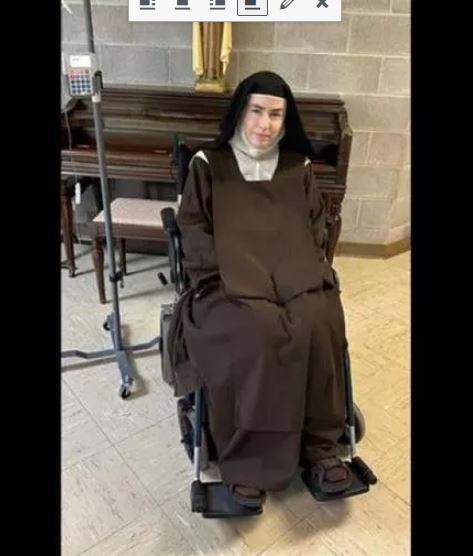 The affair of Fr. Patrick Conroy’s tendered and withdrawn resignation as chaplain of the House of Representatives is one of those regrettable incidents in our public life that nevertheless has the virtue of bringing to light certain things that most politicians would prefer to be kept in the dark.
The affair of Fr. Patrick Conroy’s tendered and withdrawn resignation as chaplain of the House of Representatives is one of those regrettable incidents in our public life that nevertheless has the virtue of bringing to light certain things that most politicians would prefer to be kept in the dark.
Among these is the tenuous strength of the Republican alliance between Catholics and evangelical Protestants born of supposedly shared values. In fact, few shared values exist.
The most cited example is their supposedly mutual opposition to abortion. For a Catholic there is rigorously defined teaching about what it means to affirm that human beings are made in God’s image and possessed of an inherent metaphysical dignity; this is why we reject not only abortion but artificial birth control and eugenics and in-vitro fertilization and cloning, and why we insist upon the just wage and the harmonious cooperation of social classes; why, in the face of the mass exterminations of the 20th century the modern popes have (perhaps too forcefully) cautioned against use of the death penalty.
Among evangelicals, who only recently decided that abortion should be illegal and in many cases grant so-called “exceptions” that permit the murder of children so long as they were conceived in sufficiently barbarous circumstances, this opposition is a crudely fideistic, if welcome, development. It exists in complete isolation from the other propositions about human nature that for Catholics make it comprehensible. This is why it is also difficult to make sense of the Protestant strictures against homosexuality except as a species of bigotry, appearing as it does against a backdrop of tacit, and at times explicit, approval of divorce, concubinage, contraception, and other disordered practices within marriage, fornication, and self-abuse.
Seemingly in exchange for the cooperation of evangelicals, conservative American Catholics have abandoned one of the great jewels in the crown of the Church, her modern social magisterium, the tradition that runs from Pope Pius IX’s denunciation of Victorian-era classical liberalism to Pope Francis’ Heideggerian assault on the merciless logic of globalized technocratic capitalism. For evangelicals, the idea that there is a common good toward which the political order must be oriented — and that this mutual flourishing cannot be conceived of as the mere aggregate of millions of individuals pursuing their own material interests with limited interference from the state — has no basis in theology. In return for evangelicals’ acknowledgement of one evil, Catholics have learned to ignore what the Church has to tell them about how we are to live in the world with one another.
What has been the result of this abandonment of principles? Forty years of infanticide, economic exploitation, and spoliation of the Earth as the forces of capital and technology disrupt all our settled customs, habits, convictions, and affections, at an increasingly rapid pace. Think tanks have been founded, fellowships have been granted, journals have been founded, and symposiums held. A whole new conception of politics has emerged out of what ought to have been a limited prudential alliance — but the clock has not been turned back a minute. “All that is solid melts into air,” as Marx put it, and Catholics and evangelicals stand together with their paper cups trying to catch a few drops of the precious liquid to put back in their broken refrigerators.
Of course these differences and concessions are never discussed in public. Instead they fester in darkness and later break forth in the form of evangelical disgust at clerical celibacy, for example, like that supposedly voiced by House Speaker Paul Ryan’s chief of staff and Rep. Mark Walker (R-N.C.), himself a Baptist minister, and homophobic insinuations about the chastity of priests. The idea that because a man does not wear a yellow golf shirt on Saturdays and has no children he cannot speak to the problems of married life will seem risible to anyone who has ever asked a priest for spiritual advice — and perfectly sensible, no doubt, to the millions of Americans who have not. The gulf is simply unbridgeable.
I do not mean to suggest Catholics and evangelicals should no longer cooperate politically. But there is something to be said for the idea that we should not paste over our differences. Frankly speaking I cannot imagine why someone who is not a Catholic would derive any spiritual solace from Fr. Conroy. I for one would not dream of going to a Protestant clergyman, who cannot, among other things, hear my confession, to discuss religious questions or personal difficulties. The complaints of those who felt that their perceived spiritual needs were not being met by a priest are understandable. Perhaps the answer is that rather than privilege the Church in this manner we ought to have several House chaplains, or none at all.
I for one cannot go this far. To me it seems remarkable that the closest thing we have in our officially secular republic to an establishment of religion is a sacrificing priest appointed to pray for our legislature. I would not see Fr. Conroy deprived of this benefice for all the world.
But that is why I am a Catholic rather than a conservative.
AP Photo/Pablo Martinez Monsivais







